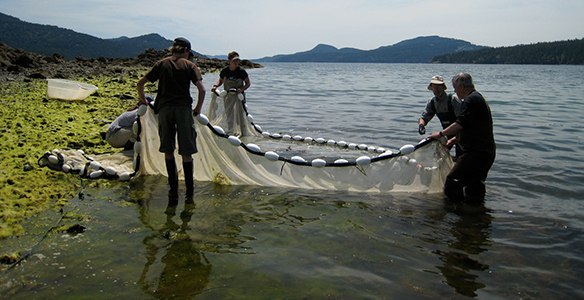— from Dan Vician —

I write regarding the current discussion/review of our law enforcement programs, including training, certification and accountability. It certainly appears that our U.S. Senate and House are not on the same page. I suggest a platform upon which Joint Consolidation might flow easier.
I suggest a new government agency, likely under the Department of Justice, be created to establish and oversee uniform standards for training, initial and continuing certification, and accountability for all our country’s law enforcement personnel. Such a program, put into place by this new agency, is the best way to assure comprehensive, safe, accountable and effective law enforcement operation in our country.
I suggest the Federal Aviation Administration (FAA) is a perfect example to emulate. Our country’s commercial pilots receive federally set standards for training, certification and performance. Continuing federal review and evaluation exists throughout each pilot’s career. Where a pilot’s job performance does not conform to standards, a federal enforcement process is in place as well. No citizen is enraged that there is a uniform, in purpose and application, piloting process. So then, use the “pilot example” for our first federal law directing immediate measures impacting law enforcement officers, their training and their job/performance.
In other words, there is no need to reinvent the wheel. Instead, modify an existing one by using existing federal comprehensive oversight agencies, as that platform. The FAA sets and enforces standards of safe air operations in our country. These standards apply uniformly both to the myriad of large and small air carriers, as well as, the pilots employed by those companies. Note as well, that the standards set by the FAA supersede or otherwise supplant individual company/pilot labor contracts in the areas of initial and continuing pilot training, subsequent pilot certification(s), and follow-on pilot job performance accountability.
Summing up, similar to our country’s commercial pilots, shouldn’t our law enforcement officers (federal, state, county, city, police/sheriff, etc.) receive standardized training, leading to standardized certification, and have standardized accountability? Further, our country’s citizens need to know that, as is with all commercial pilots, all law enforcement officers work under standardized safety and performance rules, regulations, and requirements. Those standards can only flow from a federal level agency that has both the responsibility to set the standards – and enforce those standards.
For those who would like to review my analogy offering further, the following is added that can be used as guidance to establish similar law enforcement officer regulations. There are many examples within FAA piloting oversight rules that should attain immediate and widespread support for putting similar federal regulation into place for our country’s law enforcement officers. For example:
- Standardized minimum requirements to become and remain a pilot, for example: initial and recurrent schooling/training. For commercial pilots, annual simulator evaluations occur. If a pilot does not perform acceptably to an emergency situation presented, s/he fails the evaluation and receives re-training and then re-evaluation AND re-certification. It’s better to handle performance problems within a training environment
- Annual/semi-annual FAA designee (doctor) medical health reviews
- So-called, “no-notice” fly-along, first-hand reviews of continuing pilot job performance by FAA-Designated Examiners
- FAA random drug/alcohol testing exists, occurring at any time while the pilot is on duty. Test positive? Immediate grounding. An approved/standardized (and difficult) process exists for pilots seeking to get the job back
- If there is an airplane crash that causes death – regardless of cause – there is going to be a thorough Federal level review before determining if/when surviving pilots fly again
- A National Register is being viewed as a way to identify “Bad Cops” and prevent them from getting hired elsewhere. In comparison, if a pilot either quits or is terminated from a prior piloting job and then seeks a new job at another air carrier, there is no pilot “National Register.” There is something, perhaps better: All the follow-on pilot hiring company needs to do to get the truth regarding the prospective applicant, is request the administrative records from the prior employer (which is required to provide to them)
- Pilots don’t wear Body Cams however, 100% of their on-duty personal conversations and radio communications are recorded; plus, in case of incident or accident, the so-called “Black Boxes” have recorded their every piloting action
- Regarding Qualified Immunity. I am not an attorney, however as I understand it, qualified immunity does not apply to law enforcement officers only “when the official violated clearly established statutes which a reasonable person would have known.” As mentioned above, pilots have initial and follow-on (new or recurrent) certification requirements, where listing, review and training of acceptable and unacceptable piloting actions are taught. So too should the new federal law enforcement oversight agency require such mandated initial and reoccurring classroom training regarding permitted and non-permitted actions while on duty. Pilots are responsible for any unapproved/non-permitted actions. So too should our law enforcement officers.
An immediate law regarding all of the above in establishing a new federal level, law enforcement officer accrediting, continued training/evaluation, oversight, and accountability agency, should pass with overwhelming support – if only in just raising the requirements of our country’s law enforcement officers to what currently exists for our country’s commercial pilots.
I suggest that doing the above will allow for a first law addressing some of the most pressing issues regarding law enforcement officer training, certification, recurrent training, and, accountability; while identifying and putting in motion more work for the future. Those areas where more time is needed, for example, establishing standardized training, will then have the necessary time to research, seek appropriate committee input and review, to add further to the initial law.
Dan Vician, Captain, Northwest/Delta Air Lines (Ret.), Colonel, USAF (Ret. – Active Duty and Reserve)








This is simply a brilliant idea. There obviously has to be more than these steps, but it is a very good start. I hope that we can think more about getting this idea into the hands of people who can pass federal legislation implementing this.